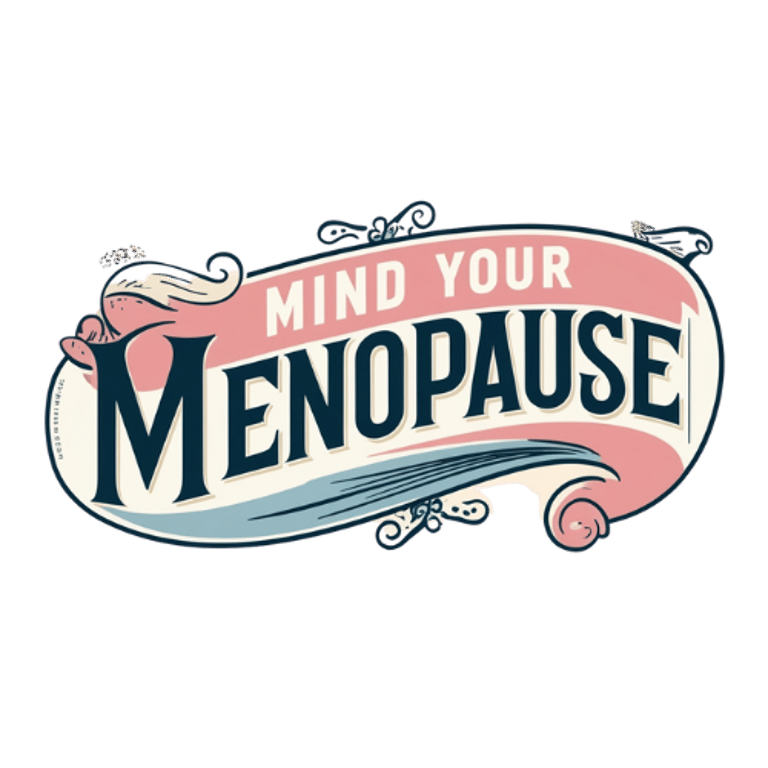10 Menopausal Signs and Symptoms Every Woman Should Know
Menopause isn’t just about hot flashes or missed periods. Once you’re in it, the signs can be surprising, frustrating, and completely overlooked by mainstream advice. This blog breaks down 10 signs and symptoms every woman in menopause should know—plus why they happen and how to feel better using food, movement, and daily routines that actually support your body. From belly fat to itchy skin, it’s all here, without the fluff or fear. Learn how to tune in, take action, and feel empowered.
4/10/20255 min read


You’ve entered menopause—and your body is letting you know.
Whether it happened gradually or hit you like a wave, menopause is here. Your period has stopped (or been gone for 12+ months), but the symptoms haven’t. And while everyone talks about hot flashes and mood swings, few talk about the deeper, less obvious signs—like itchy skin, stiff joints, or sudden anxiety that comes out of nowhere.
This phase is natural, but it’s not passive. Your body is going through a full hormonal reorganization, and it needs support—not restriction or shame. When you understand what’s really going on, you can respond in a way that helps you feel calm, clear, and stronger in your skin.
Let’s break down 10 menopausal signs your body may be sending—and how to support them without second-guessing yourself.
1. Fatigue That Lingers No Matter How Much You Rest
You're sleeping, but it’s not refreshing. Even simple tasks leave you wiped out.
This isn’t laziness. This is what happens when estrogen and progesterone drop—and your nervous system no longer has the same hormonal buffer. Add blood sugar dips and disrupted sleep, and fatigue becomes a daily struggle.
What to watch for:
Waking up tired after 7–8 hours of sleep
Needing naps or caffeine to function
Low motivation or brain fog by midafternoon
What helps:
Start the day with protein + fiber to stabilize blood sugar
Get sunlight before 10 a.m. to reset circadian rhythm
Use magnesium glycinate or adaptogens (like ashwagandha) to support your adrenals
2. Belly Fat That Seems to Appear Overnight
Your weight hasn’t changed much—but your shape has. Your midsection feels fuller, tighter, or puffy, and it doesn’t respond to your usual routines.
As estrogen declines, your body stores more fat around the belly to protect against hormonal instability. Add cortisol and insulin resistance to the mix, and belly fat becomes your body’s emergency plan—even if you’re eating clean.
What to watch for:
Belly weight gain that’s stubborn despite healthy habits
Sugar or carb cravings—especially in the evening
A feeling of heaviness or inflammation in your core
What helps:
Anchor every meal with protein, fiber, and healthy fat
Focus on strength training over cardio
Add fermented foods (sauerkraut, coconut yogurt) to support your gut
3. Sleep Disruption That Has No Clear Trigger
You’re tired at night… until your head hits the pillow. Or you fall asleep easily, only to wake at 3 a.m. and lie there, wide awake.
Menopausal sleep problems are linked to estrogen’s role in regulating melatonin, cortisol, and body temperature. Without that hormonal rhythm, your internal clock gets thrown off.
What to watch for:
Trouble falling or staying asleep
Waking up hot, anxious, or alert in the middle of the night
Poor recovery after workouts or stress
What helps:
Magnesium and B6 supplements before bed
A consistent evening wind-down routine (dim lights, no screens, warm bath)
Herbal teas like lemon balm or chamomile
4. Bloating and Digestive Changes You Didn’t See Coming
You're eating healthy, but by late afternoon, your belly looks and feels completely different.
Menopause alters gut motility, slows digestion, and changes your microbiome—all of which can lead to gas, bloating, and constipation. Your menopausal gut needs support in ways it didn’t before.
What to watch for:
Daily bloating regardless of diet
Gassiness, sluggish digestion, or constipation
A new sensitivity to foods you once tolerated
What helps:
Ground flaxseed daily for fiber and hormone detox
Cooked greens (like kale, chard, or spinach) to ease digestion
Peppermint or ginger tea after meals
5. Itchy Skin, Scalp, or Ears
You’re not allergic—and yet you’re scratching more. Your skin feels tight. Your ears tingle. Sometimes even your scalp or chest feels dry or irritated.
Estrogen helps maintain your skin’s moisture barrier. Without it, dryness and itchiness can show up in strange places—and get worse without obvious cause.
What to watch for:
Itchy ears or scalp
Dry, flaky skin—especially around your chest, back, or neck
Random patches of irritation without rash
What helps:
Omega-3s from walnuts, flax, or algae-based DHA
Vitamin E-rich foods like sunflower seeds, almonds, and avocados
Hydrating from within—at least 80 oz water + electrolytes daily
6. Joint Aches That Come Out of Nowhere
You didn’t pull anything. You didn’t overdo it. But your knees, wrists, or fingers feel stiff—and you’re wondering why.
Menopausal joint pain is real. Estrogen supports collagen and reduces inflammation, and without it, connective tissue can become drier and more brittle.
What to watch for:
Morning stiffness in fingers or knees
Soreness during or after light movement
A general feeling of being less flexible
What helps:
Turmeric, cinnamon, and ginger in food or supplement form
Stretching + mobility exercises (like yoga or foam rolling)
Hydration + magnesium to keep joints lubricated
7. Gum Sensitivity or Bleeding When You Brush
Your dentist says everything looks fine. But your gums feel different—more tender, more reactive.
That’s not in your head. Estrogen supports oral tissue and circulation. Its loss can lead to inflammation, recession, and a higher risk of gum disease.
What to watch for:
Bleeding when brushing or flossing
Swollen or sensitive gums
Increased dry mouth or bad breath
What helps:
Vitamin C from bell peppers, kiwi, and citrus
Oil pulling with coconut oil a few times a week
Staying hydrated and avoiding mouth-drying products like alcohol
8. Hair Growth Where You Don’t Want It (and Loss Where You Do)
Your part looks wider. Your chin hairs are suddenly multiplying. You feel like you’re managing hair in all the wrong places.
As estrogen drops, testosterone becomes more dominant. This hormonal imbalance leads to thinning on the scalp and increased facial or body hair in unexpected spots.
What to watch for:
Thinning at the temples or crown
Coarse chin hairs or longer nose hairs
Itchiness around hair follicles
What helps:
B-complex and zinc to support hormonal balance
Scalp massage and rosemary oil for hair growth
Regular grooming and self-kindness—it’s hormonal, not personal
9. Creeping Anxiety That Feels Like It Has No Source
You feel uneasy. You can’t settle. Your brain is running in loops even when your life is fine.
This often isn’t situational—it’s biochemical. Estrogen helps regulate serotonin and GABA, the neurotransmitters that help you feel calm and grounded. Without it, your baseline stress can feel elevated—even if nothing is “wrong.”
What to watch for:
Racing thoughts, especially at night
A tight chest or sense of dread that comes and goes
A new avoidance of things you used to enjoy
What helps:
L-theanine (in green tea or supplement form)
Deep breathing with long exhales (4-7-8 technique)
Swapping caffeine for calming herbal infusions
10. Your Memory Feels Foggy and Your Focus Slips
You're in the middle of a sentence… and then it's gone. You walk into a room and forget why. It's frustrating—and more common than anyone admits.
Estrogen is crucial for cognitive function. It impacts blood flow to the brain, memory, and mental clarity. Without it, your sharpness might feel dulled.
What to watch for:
Forgetting words mid-conversation
Difficulty focusing or finishing tasks
Feeling mentally slower or spacey
What helps:
Omega-3s and antioxidants (like berries, flax, walnuts)
Mindful multitasking—reduce inputs, focus on one thing at a time
Movement—walking boosts memory and mood
Final Thoughts: This Is Menopause—And You’re Allowed to Understand It Fully
No, you’re not falling apart. You’re not being dramatic. And you’re definitely not alone.
Menopause is a complete shift in how your body operates—but it doesn’t have to feel like the end of your power. It can be the beginning of a deeper understanding, a gentler rhythm, and a wiser relationship with your body.
The more you know your symptoms, the more you can respond with care instead of confusion. You don’t have to accept discomfort as the new normal. You just need a plan that works with your body, not against it.
Get your free MEND Gut-Healing Blueprint now! 👉
Mind Your Menopause
Supporting women through menopause with expert guidance.
team@mindyourmenopause.shop
© 2025. All rights reserved.
